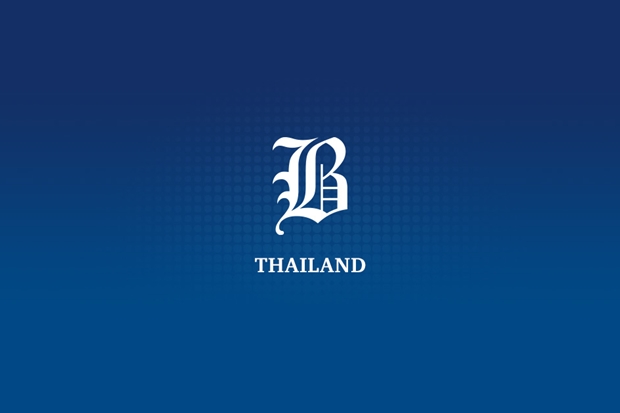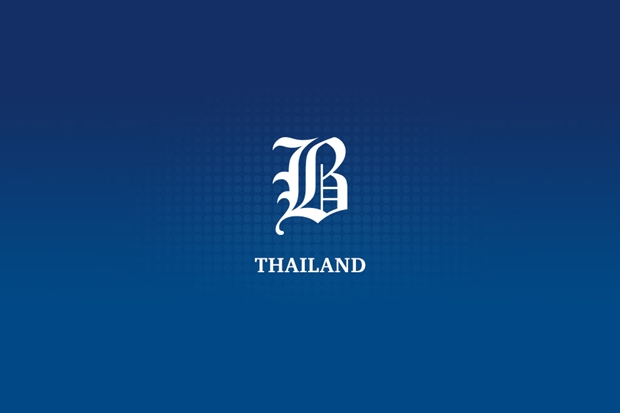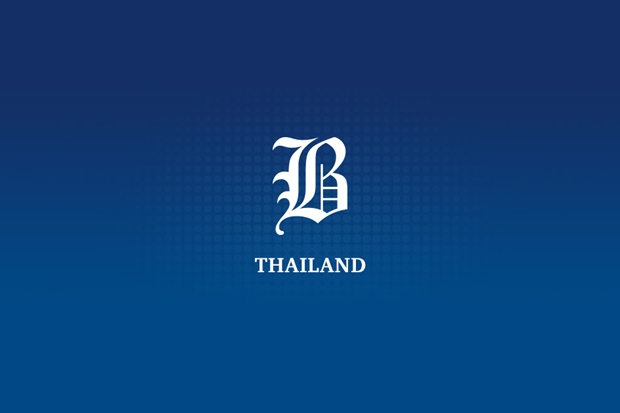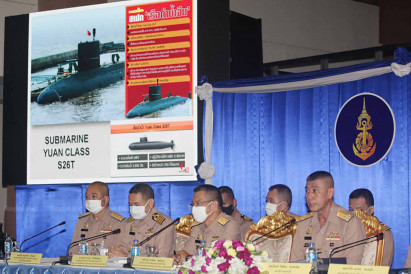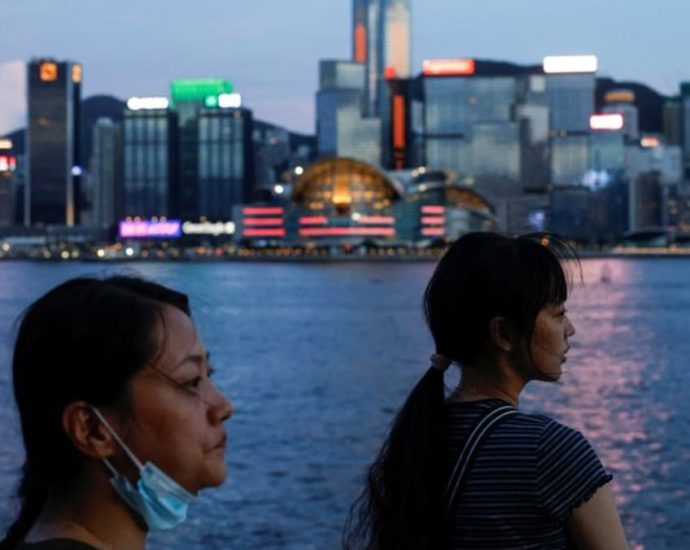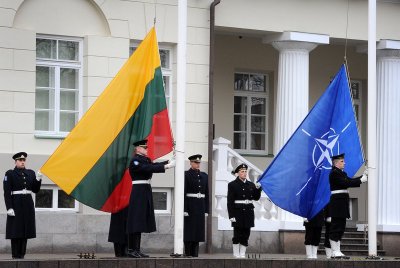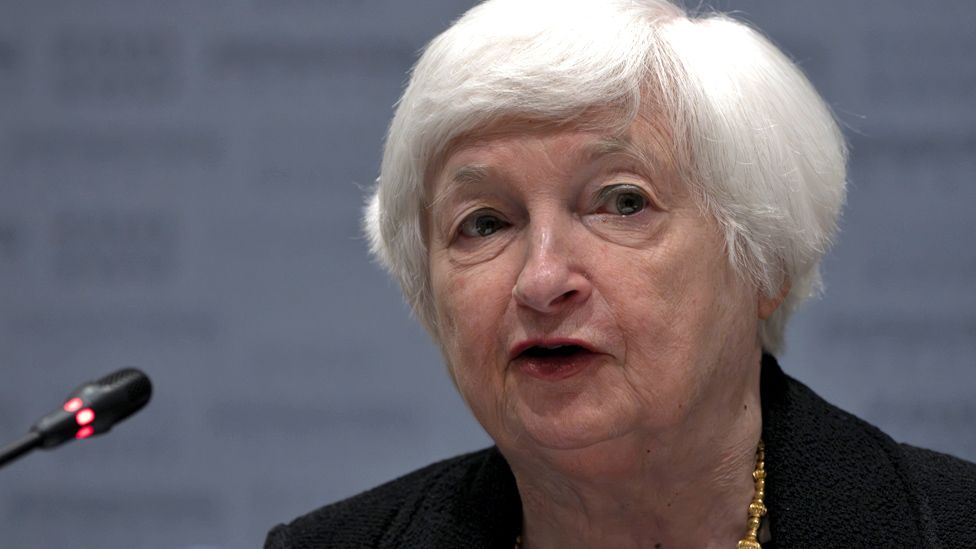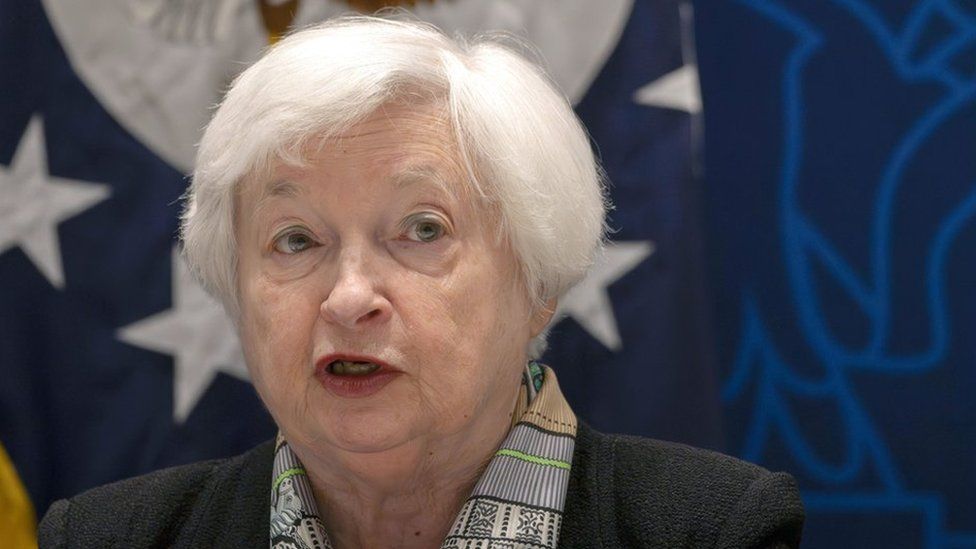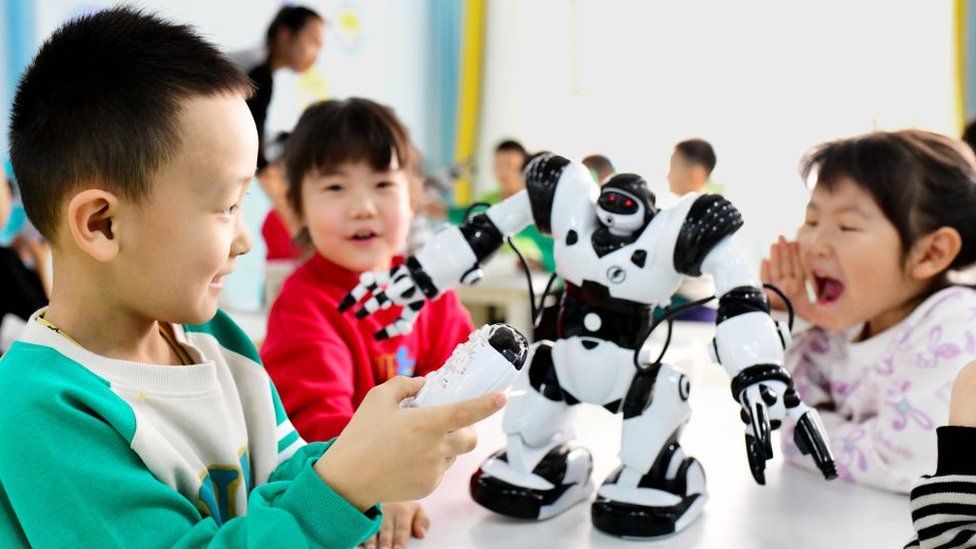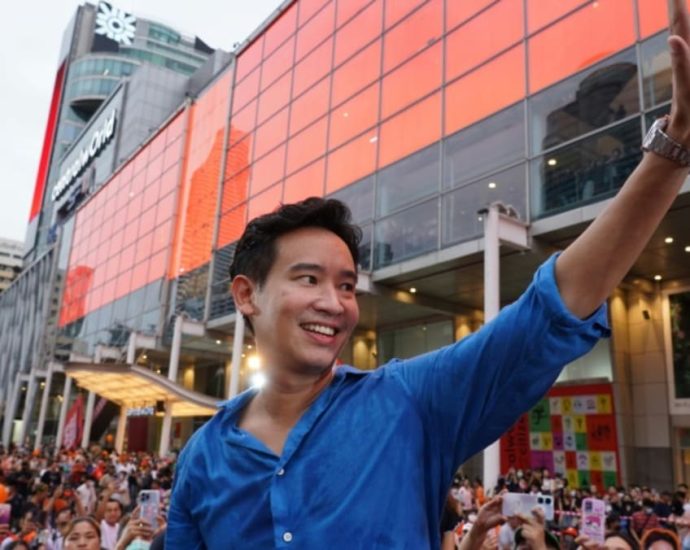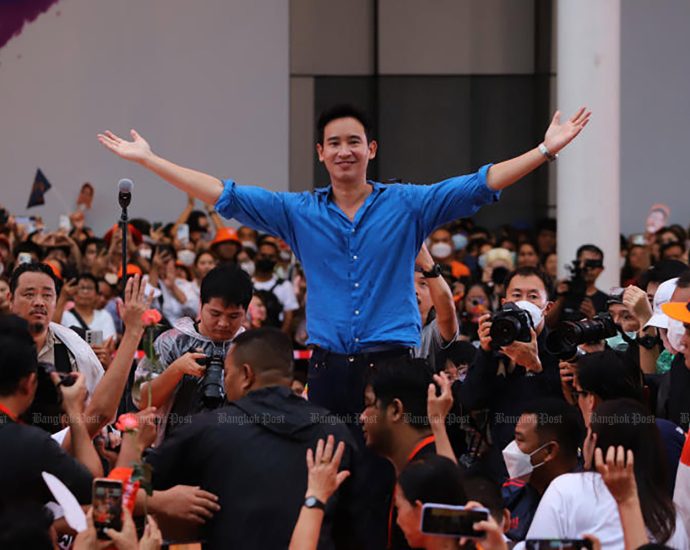4 dead in bus accident

Bus accident kills four on mountain
Si Sa Ket: Four people were killed and 34 others injured when their bus veered off a mountain road and overturned in Phu Sing district yesterday, police said.
The bus was taking participants of a Suranaree Trail Running competition back to the starting point when it lost its balance on a trip down Phanom Dongrak mountain.
The accident occurred near Phaya Kruepree cliff. The number of passengers on board had yet to be confirmed.
The trail run started at Wat Krai Pattana and ended at Talad Mai on the mountain with buses provided to take participants back to the start point. Police are investigating.
Exat extends toll discount to 2024
transport: The Expressway Authority of Thailand has extended toll fee reductions for Chalong Rat expressway for all types of vehicles until the end of this year.
Motorists entering Phra Ram 9-1 tollgate currently receive a 10-baht discount per trip until Dec 31 in line with the Transport Ministry’s policy to help reduce the cost of living. They can pay with cash or via an easy pass system.
Four-wheel vehicles pay 30 baht instead of 40 for their toll fee while six-to-10-wheel vehicles pay 50 instead of 60 baht. Larger vehicles pay 70 baht instead of 80 baht.
Stargazers in for evening treat
Astronomy: The Greatest Brilliancy — a phenomenon when Venus is at its brightest — will be visible this evening, according to the National Astronomical Research Institute of Thailand.
Skywatchers can observe the dazzlingly bright planet from 7pm–9pm with the naked eye. When seen through telescopes, it will look like a crescent moon.
Narit says Venus will shine at magnitude -4.6. On the stellar magnitude scale, the higher the number, the fainter the object. The full moon shines at magnitude -12.
Those who miss today’s event will have a second chance on Sept 18 when Venus reaches its greatest illuminated extent in the early hours from 3.25am until sunrise.
Worker held for ‘B32m swindle’
Crime: A woman posing as a bank worker was arrested in Pathum Thani yesterday for swindling people out of 32 million baht, according to the CSD.
Natwarin, 33, was nabbed at Rangsit train station in Thanyaburi under an arrest warrant issued by Samut Sakhon provincial court. She was wanted for running fraudulent investment schemes with more than 100 victims, police say.
According to the CSD, the suspect used social media such as Facebook and the Line chat application to lure victims to invest in micro finance schemes from October 2019–April 2020.
The investments, which ranged from 2,000–5,000 baht per person, amounted to 32 million baht. When her clients could not contact her in April 2020, they filed complaints with police in several provinces.
Gold card care for city-dwellers
Health: More than 700,000 members of the universal healthcare coverage scheme, known as the gold card, who are working in Bangkok but registered in their home provinces are now allowed to receive medication at community clinics and healthcare centres under the NHSO.
It came after Bangkok governor Chadchart Sittipunt and NHSO secretary-general Dr Jadet Thammathat-aree recently signed an MoU on the cooperation.
Mr Chadchart said these non-Bangkok members need not move their names to a house registration book in Bangkok. Instead, he urged them to register at the NHSO’s clinics and healthcare centres close to their houses in the capital under the 30-baht healthcare scheme.
Dengue cases on rise: DDC

The number of dengue patients recorded in the first half of this year was almost triple the figure recorded in the same period last year, according to the Department of Disease Control (DDC).
The total number of dengue patients recorded from Jan 1 to June 28 was 27,377, close to three times the number recorded in the same period last year, said the DDC.
Among the 27,377 cases, 33 patients have died, it added.
The virus spreads to people through the bites of infected Aedes-species mosquitoes.
Last month alone, between 1,500 and 2,400 new patients were confirmed to have dengue every week, and of this number, one to three patients died as a result of the infection, said the DDC.
Most of these patients were people in the age range of five to 14 years, followed by ones in the age range of 15–24 years, said the DDC, adding that the South recorded the highest number of patients, followed by Bangkok and Central Plains provinces.
Dr Thira Woratanarat, an associate professor at Department of Preventive and Social Medicine, Faculty of Medicine, Chulalongkorn University, meanwhile, warned against the casual use of aspirin when having a fever because if the fever is actually caused by dengue virus infection, aspirin heightens the risk of developing Reye’s syndrome (RS).
RS is rare disorder that affects all organs of the body but is most harmful to the brain and the liver — causing an acute increase of pressure within the brain and often massive accumulations of fat in the liver and other organs.
BMA seals off abandoned buildings

Photos of homeless spark safety concerns
The Bangkok Metropolitan Administration (BMA) has set up fences along some abandoned buildings near Satriwithaya School after photos of homeless people living on Ratchadamnoen Klang Avenue that went viral sparked concerns over the safety of students.
BMA spokesman Ekwaranyu Amrapan yesterday said Phra Nakhon District Office inspectors have patrolled the avenue and set up fences along some abandoned buildings near the school, including the Suksapan store, a state stationery store which closed in February 2019, to prevent homeless people from trespassing.
The district office sent street cleaners on Saturday to collect rubbish and clear the area to ensure sanitation, he said.
Many parents had raised concerns about their children’s safety as students must walk past homeless people to go to a bus stop or wait for their parents to pick them up from school, he said.
Some people came to the spot at night to offer food to the homeless, he said, although the BMA had prepared two locations nearby for those who want to donate food.
One location is under the Phra Pinklao Bridge, which provides food to 200 homeless individuals per day, and the other is in Sake Alley on Assadang Road, where food is available for 150 homeless people per day, he said.
The BMA is urging people who want to donate food to do so via forms.gle/2hZzssfChcJtrALK9 to ensure orderliness, he said.
Recently, a netizen posted photos of homeless people on ramps, stairs and raised platforms in front of the abandoned buildings on Ratchadamnoen Klang Avenue, and they went viral on social media.
A message saying “Ratchadamnoen Avenue is a historical place with a beautiful landscape but it has deteriorated due to a gathering of homeless people” was attached to the photos.
Some homeless people also drink alcohol while others use narcotics and were aggressive to passersby, the netizen said, adding pedestrians do not feel safe being near them.
The netizen also noticed the Satriwithaya students and felt concerned about their safety.
The netizen then urged people not to donate food to homeless people in the area and take photos for added clout.
Panel backs procuring Chinese sub engine
Delivery years away even with govt OK

A navy panel is likely to recommend a Chinese-made engine as a substitute for a German-made one for an S26T Yuan-class submarine being assembled in China, according to a naval source.
The panel working on the submarine engine issue is waiting for certification of the Chinese-made CHD620 engine by the Chinese Defence Ministry before drawing up a final report, said the source.
The panel chaired by navy chief-of-staff Adm Chonlathis Navanugraha has unofficially recommended the use of the CHD620 engine as a substitute for a German-made MTU 396 diesel engine.
The panel considers the submarine project essential to the navy’s mission in protecting the country’s maritime interest and the submarine procurement should go ahead, said the source.
The committee recently observed the testing of the Chinese-made engine, the source said, adding the engine is not for the submarine propulsion system, but for generators to produce electricity to recharge batteries that run the submarine.
China Shipbuilding & Offshore International Co (CSOC) which is contracted to build the submarine under a government-to-government agreement offered the CHD620 after Germany refused to sell its MTU 396 diesel engine to China as it is designated a military-defence item.
According to the source, if the navy eventually agrees to go with the Chinese-made engine, the procurement contract will be revised which requires cabinet approval.
If the new government approves the changes, it will take another 40 months before the submarine procurement is complete. The construction has been delayed due to the Covid-19 pandemic and is currently on hold due to the engine issue.
However, if the new government wants the submarine procurement project scrapped, it will have to negotiate with China for compensation which is expected to cover changes in submarine parts and delivery delay.
The submarine was originally to be delivered to Thailand this September but after the virus pandemic, the delivery was postponed to April next year. With the engine issue remaining unsettled, the deadline would be missed.
According to the source, the navy discussed with CSOC compensation regarding the delay in the procurement process and changes to the value of parts.
China reportedly offered to supply spare parts for free for eight years while the navy asked for a used submarine as compensation. There was no agreement.
In late April, navy commander Adm Choengchai Chomchoengpaet said China would accept three conditions regarding warranty, compensation and safety if the navy chose the Chinese-made engine.
For Hong Kong’s youth, government-backed hostels offer a smidgen of housing hope
HOME TRUTHS Hong Kong has been the world’s least affordable housing market for 13 consecutive years, according to research firm Demographia, and housing woes are widely blamed for most of the city’s social problems. Public housing units are available for low-income people but the average waiting time is 5.3 years.Continue Reading
Signs of a top-rank military purge in Russia
Citing Russian media but identifying the Moscow Times, which is not official and often unreliable, the British Daily Mail has published a shock report about a radical change in Russia’s military leadership.
According to the story, as published, General Valery Gerasimov, chief of the General Staff of Russia’s armed forces, and Deputy Defense Minister Yunus-bek Yevkurov have been purged.
The story goes on to say that Gerasimov has been replaced by Colonel-General Mikhail Teplinskiy. A number of other news outlets claim “General Armageddon,” Sergey Surovikin, also is missing.
Meanwhile, Oleksiy Danilov, secretary of the National Security and Defense Council of Ukraine and coordinator of the Staff of the Supreme Commander-in-Chief, claims that “Ukraine’s Defense Forces are fulfilling the number one task – the maximum destruction of manpower, equipment, fuel depots, military vehicles, command posts, artillery and air defense forces of the Russian army.”
Objective reports from the battlefield say that Ukraine has made very little progress and is losing more equipment and manpower than Russia. Moreover, it appears Russia has launched its own offensive operations in the north of Luhansk and is achieving success.
The story in the Daily Mail and Danilov’s curious statement may be part of the effort to jack up Ukraine’s prestige ahead of the NATO meeting in Vilnius. Ukraine is seeking NATO membership now, or short of that, an iron-clad security agreement.
US President Joe Biden says that the United States is considering offering Ukraine a security agreement like the one the US has with Israel. That US-Israel Agreement is not a pledge to defend Israel. Instead, it says that support for Israel “has been a cornerstone of American foreign policy.”
The US-Israel agreement means that the US will help Israel maintain a qualitative edge against its (otherwise undefined) opponents, something that the US has generally done, except when the US has withheld some weapons as a punishment for Israel’s alleged behavior on some issue such as settlements or Gaza or Hezbollah or Iran.
It isn’t clear whether Biden intends to offer this kind of agreement to Ukraine unilaterally, or whether he intends to get NATO to agree to join in on such an offer. Biden’s problem is that certain countries may have doubts about any long-term pledge, or completely oppose any such deal, as will Hungary.

NATO may content itself with some sort of statement about Ukraine’s importance and the long-term desirability for Ukraine to join NATO. If any NATO pledge demands Ukraine’s pre-war borders it will damage any possibility of peace talks.
It is likely the Biden suggestion is a fallback position because efforts to get a stronger NATO security pledge or NATO membership for Ukraine have not met with success.
Trotting out NATO NOW supporters such as former Trump vice president Mike Pence or badly damaged French President Emmanuel Macron, or Turkey’s President Recep Tayyip Erdogan, are unlikely to be persuasive.
(It should be noted that Erdogan’s statement supporting Ukraine’s NATO membership conflicts with Erdogan’s ongoing effort to once again play peacemaker between Kiev and Moscow. It would appear the Turkish president has shot himself in the foot.)
Increasingly Europeans are starting to see that the Ukraine war is undermining their security and is causing economic havoc. The French riots are a warning shot that all is not well in Europe.
While those riots might be regarded as an internal matter having to do with France’s huge problem dealing with unassimilated North African and Middle Eastern communities, the riots also represent deep frustration in Europe and a shift in European politics to the far right.
Add to this the fact that many Europeans have long wanted a Europe more independent of the United States. In fact, even Macron and his former counterparts in Germany and Italy committed themselves to setting up a European command not linked to NATO.
Now they sing a different song, but that does not mean there isn’t public support to be free of US domination. Ukraine has trapped them into following Washington’s orders.
Today Europe needs American energy, American security for oil and gas from the Middle East, and American military technology. Above all, Europe needs the US to fight for it if there is a war, as Europe’s defense capabilities are far from adequate to assure their security if attacked.
While much of the world views the destruction of the Nord Stream pipeline as an attack on the Russians, it looks more and more like it was a US effort to cut Germany off from Russian influence.
We don’t know yet exactly who is behind the various claims about a purge in the Kremlin. But we do know that General Surovikin’s daughter says that the general is fine.
“Nothing happened to him, no one arrested him, and he’s in his office,” Veronika Surovikina was quoted as telling the Baza Telegram channel, known for its contacts in the Russian security services. It is interesting that despite what Ms. Surovikina says, the press insists that Surovikin is missing.
We will have to wait and see if there is a purge in Russia and who are its victims. It is quite interesting that while the press is full of news about Russian generals, it fails to report that Prigozhin also is missing. He hasn’t been seen for many days.
Belarus President Alexander Lukashenko said that Prigozhin wasn’t in Belarus, as was agreed earlier, but had gone back to St Petersburg and, maybe, also traveled to Moscow.
There were two reports after the big raid on Prigozhin’s mansion in St Petersburg. The first is Prigozhin had come back to his home to retrieve some of the seized items, including guns, gold and cash.
The second is a report that gave a different locus for Prigozhin. It said that Prigozhin reported to the FSB (Russian intelligence) office in St Petersburg where he allegedly received his seized material, or at least some of it.
Both stories about Prigozhin are fraught with problems. How come nobody saw him? How could he stuff all the seized stuff inside his limousine? Was Lukashenko hinting that Prigozhin had been brought back to St Petersburg rather than gone there on his own?
Was Lukashenko’s hint about Moscow revealing where Prigozhin is now? Meanwhile, in Belarus, work has stopped on the camp constructed for Wagner forces who decided to stick with Prigozhin. In fact, none of those forces have been seen in Belarus.
The official Russian press (RT, Sputnik News, Tass, Izvestia) continue to report about the raid on Prigozhin’s home and portray him in very negative terms. According to some reports, Prigozhin’s popularity declined substantially with the coup attempt, and now is plunging even further as he is being portrayed as a traitor and a thief.
There are still big questions about who was complicit in Prigozhin’s attempt to seize power. Many commentators have said that Prigozhin’s foray was not a coup because he entered Rostov with a very small force, and only a part of that force carried on toward Moscow, meaning that it had no chance to win a fight with the army if there was one.
But the idea clearly was that Prigozhin was going to get support from the Russian army, but not its topmost leadership, whom he despised and wanted executed by firing squad.
The fact that the Russian army moved very slowly against Prigozhin and that the FSB, Presidential Guards and Chechen units were preparing to defend Moscow, suggest there was a real fear in the Kremlin that Prigozhin really had support for his takeover of the Russian government.

As everyone now knows, while there may have been passive support, Prigozhin could not rally the army or the security services to openly switch sides. Surovikin himself, put out a video from his iPhone telling the Wagner’s forces to halt and not fight against Russia. Was he trying to protect himself if the coup failed? Or was the appeal genuine?
It is important for Ukraine and Washington at the NATO meeting to be able to say that Russia is in crisis, that Russian forces are being worn away and that there is a concrete chance of victory against the Russian invasion in Ukraine.
Much of the news, seen in that light, is an effort to shape the NATO meeting and get a favorable outcome. On the other hand, what is being worn away is Ukraine’s manpower and equipment and Europe’s future security.
In Soviet days it was easy to see who was in and who was out. They lined up on the Kremlin wall, and depending on where they stood, you could figure their prominence. If they did not show up most of the time they were liquidated. It is harder now to be sure.
Stephen Bryen is a senior fellow at the Center for Security Policy and the Yorktown Institute. This article was originally published on his Substack, Weapons and Strategy. Asia Times is republishing it with permission.
Has Janet Yellen’s trip to Beijing improved US-China relations?
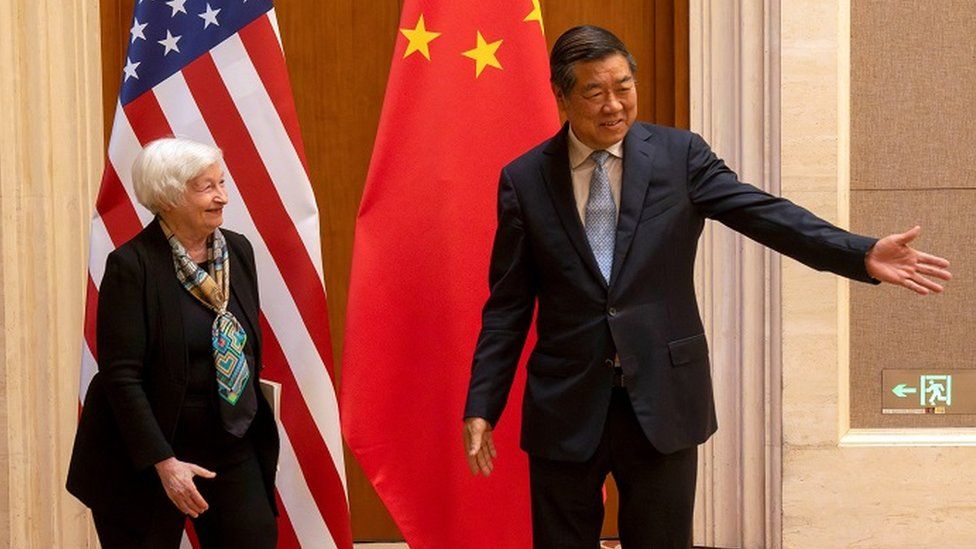 Reuters
ReutersUS Treasury Secretary Janet Yellen has just concluded a four-day trip to China, aimed at rebuilding bridges between the two countries.
Was the trip to Beijing a success? Well, by one very basic metric, yes.
The US and China are once again talking to each other, face to face, politely and respectfully, if not warmly.
It’s a stark contrast to trans-Pacific communication during the Donald Trump administration, which was done largely via the megaphone of social media.
The tone and the content from both sides is more positive and more measured.
Ms Yellen said her trip would help to build a “resilient and productive channel of communication with China’s new economic team”. That should not be discounted.
In March this year, much of the top tier of China’s government was replaced with men whose primary qualification is loyalty to leader Xi Jinping. Key among them is the country’s new economic chief, He Lifeng.
On Saturday Janet Yellen spent much of the day with Mr He. She said their talks had been “direct, substantive and productive”, while admitting that the two sides had “significant disagreements”.
Throughout her visit Ms Yellen sought to persuade her Chinese hosts that under President Joe Biden, America is not fundamentally hostile to China.
“We do not see our relationship in terms of great power conflict”, she said, and “we do not seek to decouple” our economies from each other.
It appears the Biden administration is trying to demonstrate that its China policy is not simply a continuation of the Trump administration’s open hostility to Beijing.
Did she succeed?
We are still waiting to hear from the Chinese side.
But as the saying goes, actions speak louder than words. And from Beijing’s perspective, some recent actions of the Biden administration are anything but friendly.
Key among them is the imposition of export controls on certain US microchips that are used in the development of artificial intelligence.
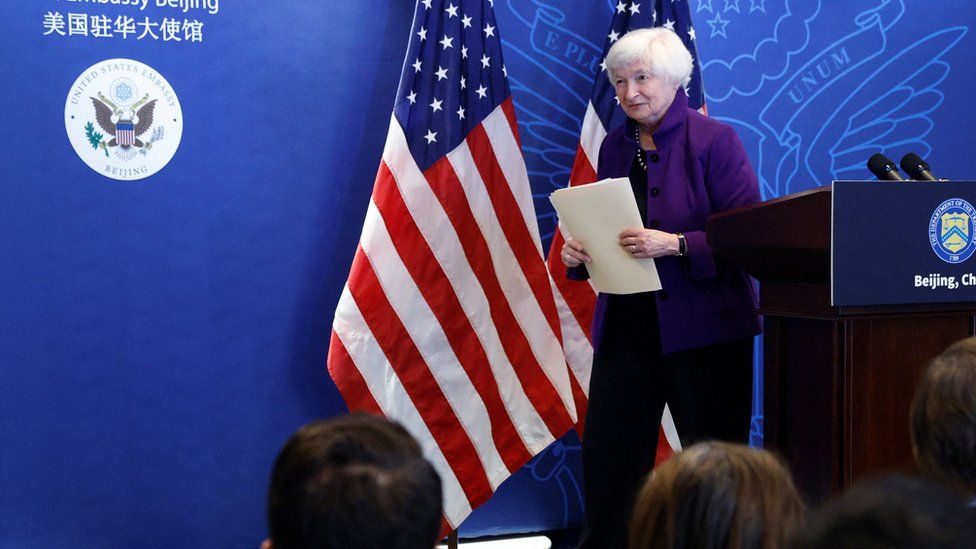
Far from being eased, the US is now moving to widen those restrictions to other high-tech exports to China, while leaning hard on its allies, from Japan to Germany, to the Netherlands, not to supply China with the means to make the most cutting-edge microchips.
America’s motivation is simple: It doesn’t want China to have easy access to American technologies that could give it an edge in things like AI, and in military technologies that could one day be used against the US in a future conflict over, for example, Taiwan.
All of this means that while dialogue has re-opened, and looks set to accelerate in the coming months, the process is delicate.
Progress made in the last few days could very easily be knocked back by another “spy balloon” incident, or a close call between US and Chinese naval ships or aircraft.
Even the most optimistic experts believe this is now a very difficult relationship that will require careful, long-term management by both sides in order to keep it stable.
Related Topics
Thai PM frontrunner rallies supporters ahead of parliamentary vote
Pita urged senators to remember “we’re all the people’s politicians”. “My thanks to those that say they’re on the people’s side and siding with the people’s majority,” he said. Following his speech, Pita told reporters that he had found “closer common ground” with the senators. “Hopefully, in the four daysContinue Reading
Pita warns parliamentarians against ‘unforgiveable’ affront to Thai democracy

Pita Limjaroenrat, the prime ministerial candidate of the election-winning Move Forward Party, on Sunday told parliamentarians that failure to vote for his premiership would be unforgiveable affront to Thai democracy.
Meeting about 1,000 supporters in front of CentralWorld shopping centre in Pathumwan district on Sunday evening, Mr Pita said Thursday (July 13) would be a historic day when House representatives and senators would have a chance to return normality to Thai politics.
“In four days it will be July 13 when lower and upper houses will jointly decide what Thai politics will be in the next decade.”
“With the right decision, Thailand will be second to none.”
“A wrong decision that is against the resolution will maintain the political abnormality of the past decade. I do not know when a golden opportunity like July 13 will recur,” Mr Pita said.
“Return normality to all people. Please do not miss this opportunity because people may not forgive and may lose faith in representatives and the parliamenty system. So, do not disappoint people,” he said.
He praised some senators who promised to “vote in favour of the people’s choice and coalition allies”, referring to the eight coalition allies – including his Move Forward Party and the Pheu Thai Party – which nominated him as the next prime minister in the Thursday vote of the joint sitting of parliament. The eight coalition allies number 312 out of the 500 House representatives.
“This opportunity is a historic moment for Thailand, the return of normality to Thai politics. All the 750 members of the lower and upper houses have the chance to return normality to Thai politics so that Thailand can progress and catch up with the world,” Mr Pita said.
He told the gathering of his supporters that he might not be a perfect prime minister, but he would be the most hard-working.
The constitution empowers senators to join House representatives in the vote for a prime minister at a joint sitting. The parliament consists of 500 elected representatives and 250 appointed senators.
To become prime minister, Mr Pita needs the support of a majority of the 750 members of the joint parliament – at least 376 votes. The eight coalition allies would need at least 64 more votes in the joint sitting on Thursday.
Many senators earlier said they could not support Mr Pita because his Move Forward Party planned to amend the lese majeste (royal insult) law.
Mr Pita’s route to the premiership is also jeopardised by petitions against his eligibility for political office related to his past shareholding in iTV plc and other legal technicalities.
The constitution prohibits a shareholder of a media organisation from running in a general election.
The Election Commission is investigating whether Mr Pita violated Section 151 of the organic law on the election of MPs.
Under the Section 151, anyone who runs in a general election while knowing he is unqualified to do so is liable to a jail term of up to 10 years, a fine of up to 200,000 baht and a 20-year ban on his electoral rights.
Numerous previous election winners in Thailand have been barred from taking office or removed by court rulings.
In 2020, Move Forward’s predecessor party Future Forward was dissolved after a ruling that a loan from leader Thanathorn Juangroonrungkit was a donation, and Mr Thanathorn was banned from politics for 10 years.
Late economist Lim Chong Yah a major contributor to Singaporeâs economic development: PM Lee

SINGAPORE: The late economist Lim Chong Yah made a major contribution to Singapore’s economic “take-off” in his role as founding chairman of the National Wages Council (NWC), said Prime Minister Lee Hsien Loong on Sunday (Jul 9).
The emeritus professor, who taught at both the National University of Singapore and Nanyang Technological University, died on Saturday at age 91.
In a condolence letter to Prof Lim’s wife Madam See Nah Nah, Mr Lee noted that Prof Lim was NWC chair from 1972 to 2001, which were “critical” years in Singapore’s economic development.
The NWC is a tripartite body with representatives from the government, trade unions and employers.
“The NWC’s annual negotiations and recommendations paved the way for smooth industrial relations and progressive wage adjustments,” said Mr Lee.
“The process helped maintain industrial peace, ensured workers enjoyed a fair share of the fruits of growth, and strengthened the tripartite partnership.”
Under Prof Lim’s stewardship, the NWC grew into a crucial institution unique to Singapore and trusted by all parties, the prime minister added.
In 1979, the NWC was involved in setting up a Skills Development Fund to encourage workers to upgrade their skills, as Singapore went from a labour-intensive economy to a skills-intensive one.
“Decades later, our journey continues, as we expand continuing education and lifelong learning to encompass the entire population. We continue to benefit from the principles and foundations that Prof Lim established,” said Mr Lee.
He also recounted the council’s work in 1986, a year after Singapore faced its worst economic downturn since independence. An economic committee chaired by Mr Lee recommended cutting the Central Provident Fund (CPF) contribution rate from 50 per cent to 35 per cent, while maintaining “severe wage restraint” to cut business costs” and restore Singapore’s competitiveness in the region.
“These were drastic recommendations,” said Mr Lee, who was acting minister of the Ministry of Trade and Industry (MTI) then.
“It was crucial that both employers and unions understood the national imperative, and the strategy was not derailed by over-generous and unrealistic wage settlements.”
Prof Lim worked closely with MTI during NWC negotiations and under his guidance “the economy revived faster than we had dared to expect”, said Mr Lee.
As the NWC matured and the economy developed over the years, the council expanded its focus to other areas such as promoting flexible wages.
It also paid attention to lower-wage workers, added Mr Lee, by crafting recommendations to make sure this segment received “meaningful wage increases and were not left behind as wages generally went up”.
Prof Lim was then given the Public Service Star in 1976, the Meritorious Service Medal in 1983, and the Distinguished Service Order in 2000 for his outstanding contributions to Singapore’s economic and national development.
Mr Lee also revealed that Prof Lim tutored him in economics for a year in 1970 while he was studying the subject for his A-Levels.
Describing him as a patient and caring teacher, Mr Lee recalled: “He would set me an essay topic each week, which I would research and write up before discussing it with him at the next tutorial. It was an active, intense and effective way to master the basics of the subject, which have remained with me and proven invaluable all my life.”
Prof Lim has two daughters and two sons. One of his children, lawyer Lee Suet Fern, became the prime minister’s sister-in-law after marrying his brother, Mr Lee Hsien Yang.
“Professor Lim will be deeply missed. I hope you will find comfort in knowing that his memory and legacy will live on through his many lasting contributions to Singapore and their impact on generations of Singaporeans,” said Mr Lee.
HUMBLE BEGINNINGS
In Prof Lim’s pre-teen years, he farmed rice, tapioca and vegetables to contribute to his family’s income, according to an article by the National Library Board (NLB). He also worked as a bread delivery boy at 14 years old.
His father was a shopkeeper while his mother died when he was eight.
Prof Lim was later awarded a Malacca Settlement scholarship to study economics at the University of Malaya, then located in Singapore.
He later joined the administrative service before embarking on a career in academia.
The NWC said in a statement on Sunday that Prof Lim’s task as its pioneering chairman was “particularly difficult” as labour management relations back then were “fraught with tensions”, but he built up trust among tripartite members by establishing a key principle of unanimity in decision-making.
With its annual wage guidelines formulated over the years, NWC made Singapore’s wage system “into one which is flexible and responsive to the changing needs of employers, employees and the economy”, said the council.
In a Facebook post on Saturday, Minister for Manpower and Second Minister for MTI Tan See Leng described Prof Lim as a distinguished economist whose contributions to the country “went far beyond the academic realm”.
He also highlighted Prof Lim’s “unceasing” concern for the livelihoods and welfare of low-wage workers.
Workers’ Party Member of Parliament Jamus Lim also expressed his admiration for the late Prof Lim’s works, which he first encountered as an undergraduate.
“Two decades on, I still assign his book on Southeast Asian economies in my courses,” said the Sengkang MP and lecturer at ESSEC Business School.
According to NLB, Prof Lim published more than 160 peer-reviewed journal articles, monographs, and books – two of which are popular as Singapore’s A-Level texts.
Singapore’s ambassador-at-large Tommy Koh said he became friends with Prof Lim when they were deans of NUS’ law and arts faculties respectively.
“He was as concerned about economic growth as he was about the fair distribution of prosperity,” Prof Koh wrote on Facebook on Sunday.
“He was offended by the growing gap between our top earners and those at the bottom of our pyramid.”
Prof Lim was also a member of the Presidential Council for Minority Rights and outside of Singapore, served as an economic consultant to the United Nations and World Bank commissions among others.
In a tribute post, NTU described Prof Lim as “an eminent economist and educator who has left an indelible mark”, and whose “foresight and “innovative thinking has guided the economic and national development of Singapore”.
Editor’s note: This article has been updated to correct information which said that Singapore had transitioned from a skills-intensive economy to a labour-intensive one. It should have been from a labour-intensive economy to a skills-intensive one. We apologise for the error.

